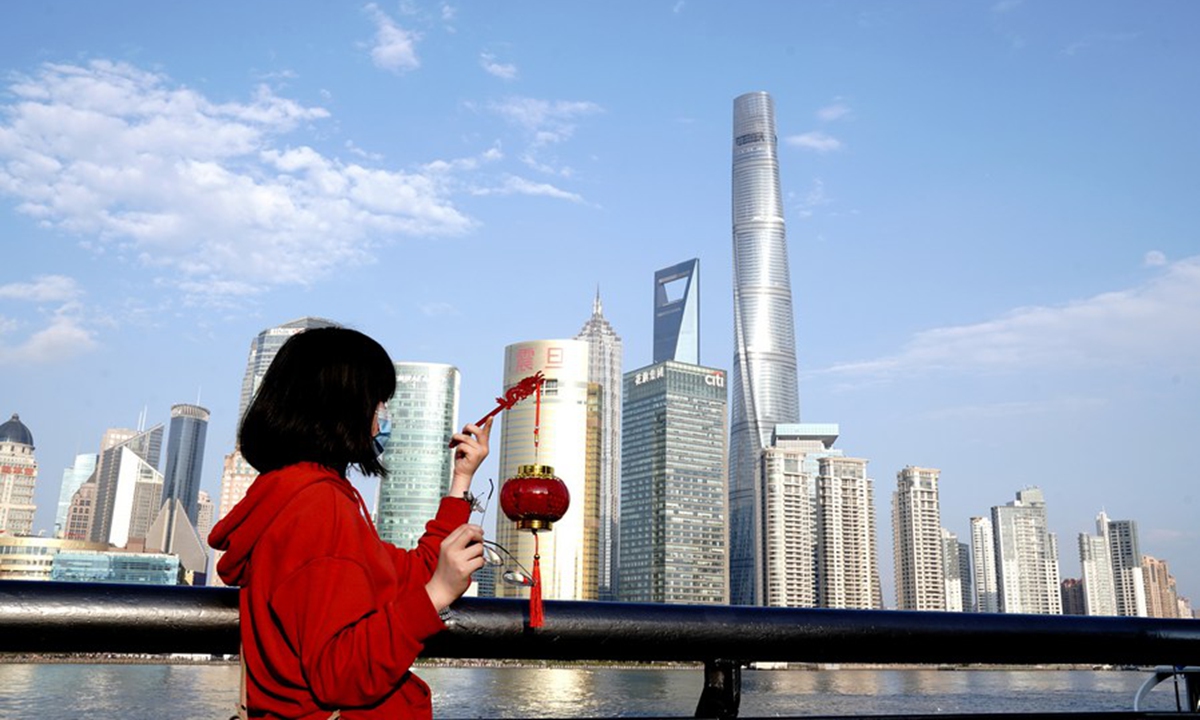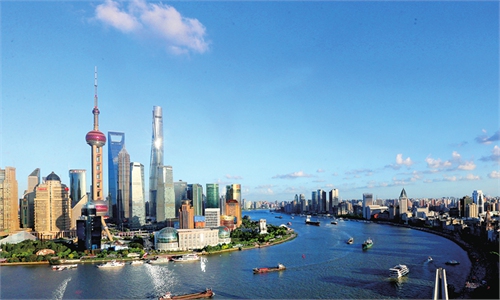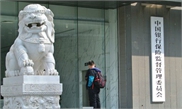Property sector deleveraging will pay off in long term: experts
China’s GDP grows 8%: World Bank

A tourist visits the Bund during the Lunar New Year holiday in east China's Shanghai, Feb. 14, 2021. (Xinhua/Zhang Jiansong)
China's GDP is estimated to grow 8 percent in 2021, according to an updated report published by the World Bank on Wednesday, down from the organization's forecast of 8.5 percent in September.The adjustment is reasonable, based on cooled economic activities in the second half of the year in the world's second-largest economy.
However, the bank overstressed downside risks to China's economic outlook -- such as a rectification of the property sector -- which is "short-sighted", as the positive long-term growth trends were neglected, experts told the Global Times.
China's GDP growth in the third quarter slowed to 4.9 percent from 7.9 percent in the second quarter and 18.3 percent in the first quarter.
"The slowdown reflects a less-favorable base effect, diminished support from exports, and the government's continued deleveraging efforts," the World Bank said.
It pointed out that downside risks to China's economic outlook have increased, including recent domestic COVID-19 flare-ups, and a prolonged downturn in the highly leveraged property sector.
The country is faced with three outstanding challenges as it shifts to a greater reliance on consumption and services, a greater role for markets and the private sector, and a low-carbon economy, according to the World Bank.
As 2021 draws to a close, most economists and institutions have announced their estimates for China's GDP growth this year, which mainly range from 8.0-8.5 percent.
China's GDP growth will till lead other major world economies, and GDP is estimated to have expanded by 8 percent, higher than the target of "above 6 percent" set by China's central government, and higher than the majority of world economies, according to an annual blue book issued by the Chinese Academy of Social Sciences in early December.
Despite mounting pressure and uncertainties, "China has the confidence, conditions and ability to keep economic growth at a reasonable level," Ning Jizhe, deputy head of the National Development and Reform Commission (NDRC), the country's top economic planner, said in an interview with the Xinhua News Agency.
China will ramp up government spending, strengthen support to manufacturers and small companies, and ensure price stability.
To aid economic growth, the government will continue to implement proactive fiscal policies, step up efforts to build an integral domestic market, and further shorten the foreign investment negative list, according to Ning.
"Though growth is projected to slow next year, we expect momentum to pick up, aided by a more supportive fiscal stance," the World Bank said.
In dealing with COVID-19 pandemic, China has stuck to the dynamic zero-case strategy. Although the strategy is criticized by some external forces and has encountered misunderstanding at home, it has proven very effective in curbing large-scale breakouts.
Cao Heping, an economist at Peking University, said the dynamic zero-case strategy has proved successful in stifling pandemic spreading in China while ensure relatively fast domestic economic development.
"Despite overall downward pressure, the economy is experiencing some normal fluctuations at present," Cao told the Global Times on Wednesday.
"The policy has yielded many benefits in protecting public health and economic development, which should not be misunderstood. It enabled the proportion of China's exports in the world's total to grow by around 3 percentage points," Nomura's chief China economist Lu Ting said recently.
Lu suggested that targeted and precise subsidies should be provided to the severely affected industries and regions to alleviate damage.
The economic downside risk posed by the debt-ridden property sector as cited by the World Bank could be a "dragging force" and impact the economy in 2022, Cao said. "However, we should not be short-sighted in only counting losses in the short term.
"Property development was a major driving force of China's GDP growth over the past four decades, and the debt woes exposed by Evergrande and the like didn't happen in a day.
"On the positive side, we are more clearer-minded now, and has started to fix the problem," Cao added.




